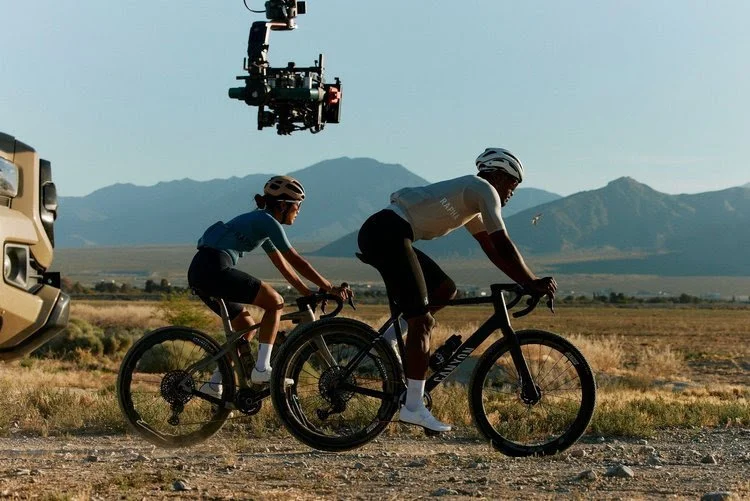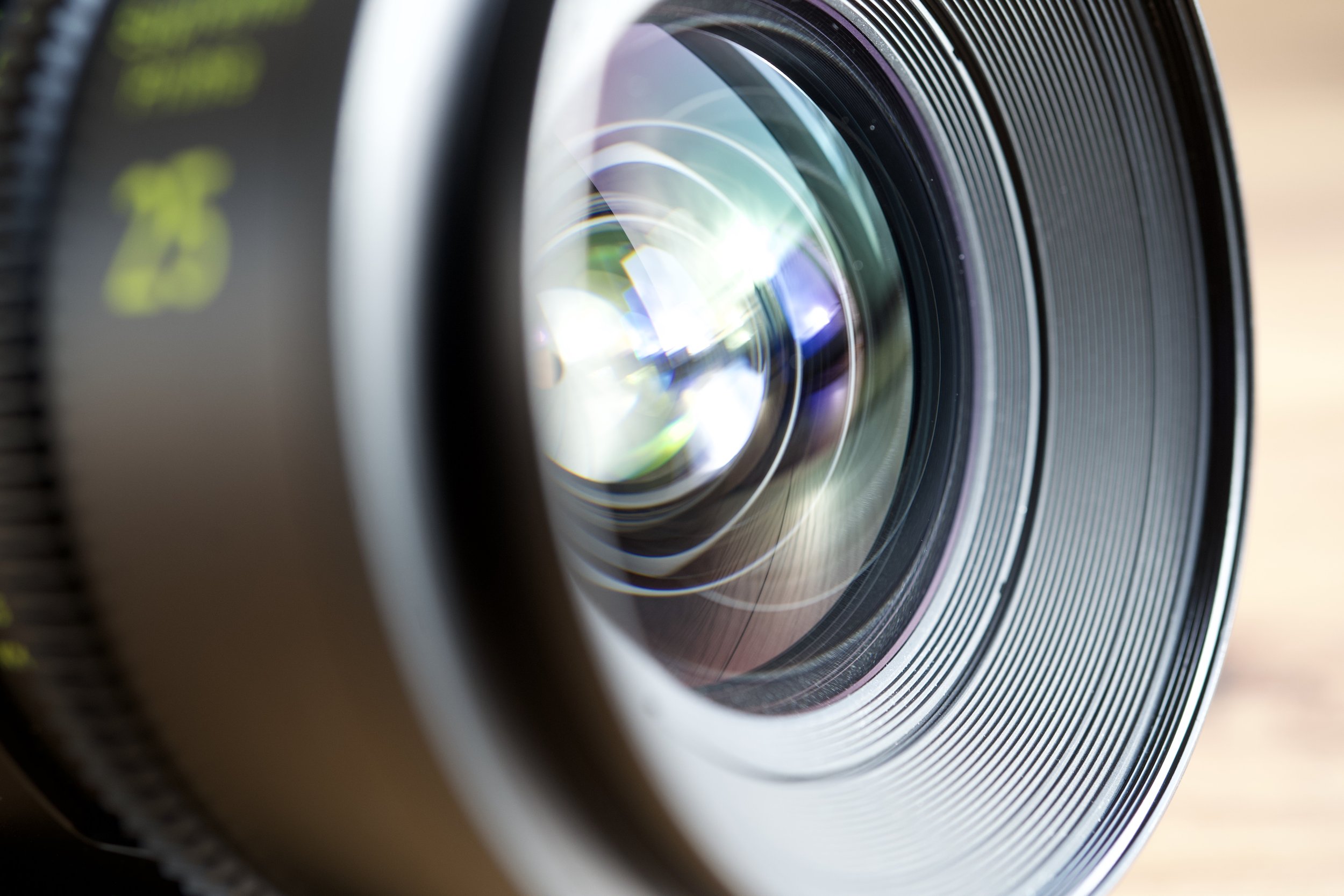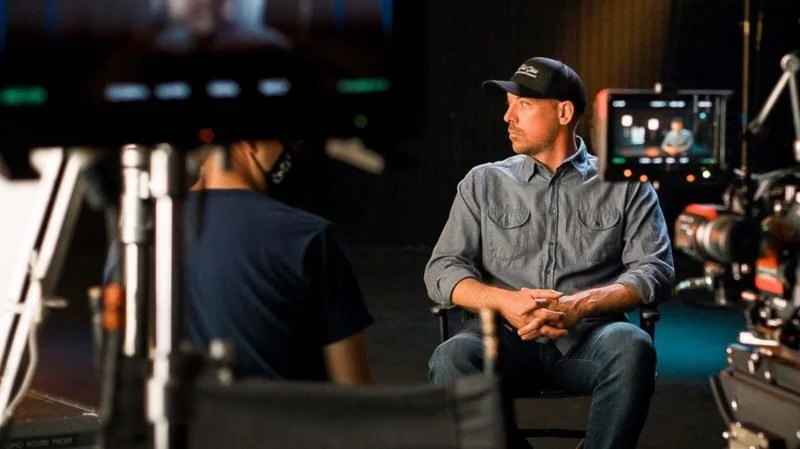Bailey, a Cinema and Media Studies major at USC and a Summer Intern at NEER, recently sat down with Kadri, an accomplished cinematographer, to delve into her remarkable path in the film industry. From studying film studies in a liberal arts college to moving to Beijing with no clear plan other than to explore documentary filmmaking, Kadri's journey is a testament to the power of passion and perseverance. With a blend of technical expertise, creative vision, and an unyielding drive, Kadri's story is one of constant evolution and unwavering dedication to her craft.
Bailey
Hi, Kadri, thank you so much for joining me. To start off, can you share with us how your journey into cinematography and filmmaking began, particularly what motivated you to want to pursue a creative path?
Kadri
I guess before I decided on cinematography, I decided on film. I was studying film studies in college, and I went to a liberal arts college, so when I eliminated everything I didn't like, I ended up with film. After studying film in an academic sense, I realized that it was really solitary and isolating to just watch movies and write about them like a film critic would. I then decided I should start to figure out how to make films and I ended up moving to Beijing, China after college to pursue documentary filmmaking. I didn't really have a clear plan I just thought if I moved to China, I'd have a very interesting perspective because I was a foreigner in China. I ended up studying Mandarin and working at a production company, just as a PA, and after a while I realized I needed to get some real skills. So, I made a little documentary to get into a documentary program at Stanford and somehow, I got a scholarship to come to the US. After graduating, I worked a little bit as an independent documentary filmmaker and I quickly realized it's a very hard field to make any money in. I decided I should learn how to shoot because then I could work with other people and I would have more of an ability to collaborate with others. So, I decided to go back to school, to the American Film Institute, to study cinematography. And that is how the whole cinematography journey got started.
Bailey
You've really been all over doing almost everything. Once you found that you wanted to go into cinematography specifically, what was it like for you trying to break into the industry? What was your route into professionally DPing like?
Kadri
Well, the American Film Institute is pretty well connected to Hollywood so the good thing is you do end up having a lot of opportunities to transition straight to work, especially for those who study cinematography. Cinematography is very technical but it's one of those skills that I think you can just pick up the camera and start shooting. However you do have to have quite a bit of access to high end gear and potentially also mentorship because you need to learn how to work with a crew and that's something that's hard to do without specialized training and why I'm so grateful for AFI for shuttling me into this sphere of being able to work right away. I started working right after graduating even though it was COVID and it’s really about your own ability to hustle and make friends and connections. Because when you're just getting started, it's not that other people don't believe in you, you don't really believe in yourself. You haven't made anything. So, you’re kind of like, I did this degree and I think I know what is going on, but the truth is, I have very little self-belief. So, I think it comes down to your ability to be a self-starter.
Bailey
You mentioned that when you're first going into cinematography, you have a constant worry of not having made anything. However you've worked on both documentary and narrative pieces. So, when you come on for one of these formats, do you approach them differently? Or do you have a similar way of going about these two things as you view them as needing the same process?
Kadri
Definitely, and I think mostly differently because it really depends on the director you're working with. I think the director sets the tone and the mood for the production because every director has a slightly different process and dramatically different way of working. The things that inspire them, the processes that they are familiar with, it always varies. You know, they have a vision and my job is to create the vision in terms of images. So, I'm always really starting from scratch when it comes to my approach because I want to accommodate the director. There's definitely differences in documentary and in fiction, but I wouldn't say that they are as severe as you would think. Because, the idea with fiction is that you kind of know everything in advance and you have a very strict and regimented plan. But, the truth of the production is that you never have enough money, even if you think you have a great budget, and so there's still going to be a lot of unknown in what you're doing. In some ways I feel like even with narrative there's such a big element of uncertainty and unknown, which is something that documentary definitely is known for, and I think the benefit of coming from documentary for me is that I'm very comfortable with the unknown. But ultimately, you're also going to be doing your best. You know you can do your best with the tools and the means that you've been given by the production and if you remind yourself of that, it always feels like whatever happens is going to be fine.
Bailey
Well, speaking of documentary projects, your project On The Line, the Richard Williams Story received a lot of attention at the Tribeca Film Festival a couple years back. Can you talk about your experience working on this project in particular, and what drew you to the film?
Kadri
This project actually came to me through AFI. I was contacted by the school because the director of the film had reached out to them asking for recommendations for an up-and-coming cinematographer, and the school gave two names and I was one of them. The director decided to work with me which was really exciting because I was also a tennis player when I was younger and obviously, the Williams family is a very inspiring family to many people, not just tennis people, so I was instantly on board. The experience of working on it was definitely life changing in the sense that it was my first bigger budget project after graduating and after surviving COVID when I was doing projects for free just to get more work under my belt. So this was a really nice feeling that I was actually able to shoot something with a bigger budget and have the trust from the director that I was the right person. And we became really good friends and we, it's funny, I was actually talking to him right before I called you, and that’s the great thing about filmmaking or being a cinematographer is that you do end up making good friends. And I think that was probably the best part about the whole journey, granted, the shoot was great because we had a good collaboration and a shared work ethic, but ultimately I think it's the friendships that you take away from productions that feel the most special. So, it’s great when you meet like minded people and not to mention to be able to tell Mr. Williams' story. It was very eye opening because when you're working on a doc, you get to know all the ins and outs since you're sitting through hours and hours of interviews and you meet their families and you meet all the people around them. I think the film is very powerful and it adds to the experience of making it as you know that this film is going to have an impact on a lot of people. We are really proud of what we made so it's always a positive experience because not always you come away thinking like, well, we made something great. It's kind of a special situation.
Bailey
Well speaking of special situations, just this year you received the 2024 Angénieux Special Encouragement Award at Cannes! How was your time at Cannes and what was that experience like for you?
Kadri
Big surprise! I didn't actually know about the prize until they reached out to me on Instagram and asked for my email because they wanted to email me the whole announcement. I was definitely in shock for a little bit and I don’t think I really shared the news for the first little while because I was like, is this real? What is this? I didn’t understand. And so then I was flown to Cannes to attend the festival for a week and I had a bunch of engagements and interviews and master classes and dinners and galas and red carpets and blah blah blah blah blah and then I got my award! So it all felt very surreal and to be honest, it still is a little bit. It's kind of funny to think that there are all these amazing, talented up-and-coming cinematographers out there and that Cannes picked me. Maybe I have an angel out there. Not maybe, for sure! And yeah, the experience was really quite something because I don't think there's a single bad movie at Cannes so I was honored to be at a festival where I so respect the programming. I had attended the festival the previous year and it's really a festival where you feel like, wow, everyone in the film world is here. You walk down the street and it's as though any movie director that you could imagine is just sitting at a cafe next to you - that's the vibe. I actually was presented the award by a French actress, Mélanie Laurent. She was my red carpet godmother. She made sure I was feeling comfortable and I did the whole ceremony together with her. And obviously it was surreal to have all the attention of the people who were there. I had so many people come up to me after my speech who were all curious to work with me and that was a really nice feeling because I think the best part about this award has been the exposure that you get and especially in France. It’s resulted in a lot of great emotions and just feeling honored and blessed.
Bailey
Coming off of the high of this award and the well deserved attention, you're currently working on a French film in France. Is there anything coming up later in the year or future that you're either excited about or hoping to get involved in? What's coming next for you?
Kadri
I have a couple of projects that have been pitched to me, but I'm not really sure what I’m doing next because in film, unless you're on a set and shooting, nothing is certain. So, I might actually have a couple of projects shooting internationally and have one feature in Estonia next year! And I'm pretty excited about this artist residency that I'm doing on an island in Croatia mid-September to mid-October. It’s a residency position where I get to work on my writing for a month and they are fully covering my work and giving me a stipend and so that's actually something that I'm the most looking forward to. I get to just work on whatever project in my pile of unfinished files; I could do anything and that feels like the biggest treat.
Bailey
That's lovely! My last question is: What advice or comments do you have for an aspiring cinematographer who's looking at you, seeing all that you're doing, and hoping to someday be where you're at?
Kadri
Oh, I think they're going to be wearing their own hat, not my hat. People in their careers tend to compare themselves and think, oh gosh I have to do this and talk to this person and look this way in order to make it, but the truth is, you just have to be yourself. The opportunities that present themselves to us are unique to us because of us. The environment we're born into and the experiences that we have is what creates us and creates our perspective which cinematography is so much about. So much of this line of work has to do with how you present yourself, how you're able to get along with people, and how you're able to work on set. And you know, that's really, truly up to you as an individual and you as an artist. And in terms of any pointers, I think the biggest thing is to always be true to yourself. I know that sounds super cliche, but I think there's a lot of value to it and I still take this very seriously. I also think that it's important to remember that this career is not a sprint, it's a marathon. You're probably going to be doing your best work in your 50s, or maybe if you're lucky, you'll be doing it sooner, but honestly to get the kind of projects that excite you and to be able to perform your best at them takes time. Because in the beginning, nobody believes in you, and then when you actually get technically good, you might still not get the projects that are actually good. This means there needs to be a certain level of hunger and curiosity for more and bigger projects, because the truth is that once you get comfortable, you're done. You have to be a little bit crazy to end up wanting to do this, hopefully in a good way, and find a lot of thrill and excitement at being able to tell stories and see the world and meet people and have your mindset altered in so many ways at all times. So yeah, it is not a career for everyone, but I think the people that love it, they can't get enough of it.
Bailey
Thank you so much for speaking with me today, it has been an absolute pleasure.


















